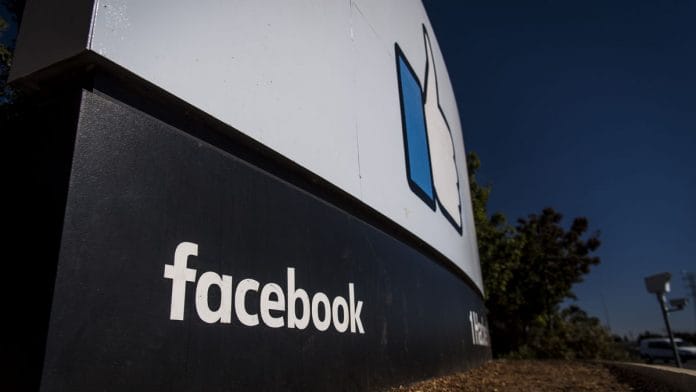New Delhi: Facebook does not remove all misinformation from its platform because it is not an arbiter of truth and no single actor should be, said a top executive of the company in an online event Thursday.
At the event titled ‘Fighting Misinformation at Facebook: Keeping our Community Safe and Informed’, Alice Budisatrijo, Misinformation Product Policy Manager, Facebook Asia Pacific region, talked about why the social media site does not fact-check politicians or remove all misinformation from the platform.
“We are not the arbiters of truth and we don’t think any single actor should be. We do not believe any single entity — either a private company or government — should have the power to decide what is true and what is false,” said Budisatrijo.
She added: “When one single actor is the arbiter of truth, there is a power imbalance and potential for overreach. With this in mind, we rely on independent fact-checkers to identify and review potential misinformation, which enables us to take action.”
Facebook had come under scanner in India last year after The Wall Street Journal reported allegation that the company had turned a blind eye to hate speech by a BJP leader and three other “Hindu nationalist individuals and groups” to avoid damaging its business prospects.
Following the publication of the report, Facebook India head Ajit Mohan had deposed before a Parliamentary Standing Committee in September 2020, and was grilled by both BJP and the opposition leaders. Mohan, however, maintained that the social media giant was “neutral” and did not have any “political bias”.
According to the presentation shown during the event Friday, removing all misinformation from the social media site will require the company to know “the truth” about everything in the world, which is impossible.
“Not all information is strictly true or false — there can be degrees of truth and opinions on what is the truth,” the presentation further stated.
Also read: Twitter, Facebook had even more deceptive news in 2020, study says
Disinformation vs misinformation
During the event, Budisatrijo highlighted two different kinds of incorrect information — disinformation and misinformation.
Disinformation, she noted, refers to sharing content with the deliberate intent to mislead as part of a manipulation campaign or information operation. This activity is coordinated and can involve the use of fake accounts.
“We don’t tolerate this activity and take these actors and their content down as soon as we become aware of them,” the Facebook executive said.
Misinformation, meanwhile, is false information that is often shared unintentionally. The content is shared on an individual basis and is not part of any coordinated attempt to mislead or deceive people.
The event primarily focused on how Facebook deals with misinformation.
Budisatrijo noted that it was commercially important for Facebook to ensure that the information on its platform is reliable and accurate.
“We are a service for more than 2 billion people around the world and we know how essential it is for people to have access to credible information, and for us to remove harmful content. This is not just an important social responsibility but it’s a commercial imperative. If people think that everything on Facebook is fake or misleading, they would stop using our services.”
She also reiterated that it was important for users to flag potentially incorrect information to Facebook. “It is important to report it to Facebook so we can take action on it.”
Also read: Zuckerberg calls Apple ‘significant’ future competitor as Facebook weighs antitrust suit
Fact-checking on Facebook
In the event, Budisatrijo also explained why Facebook does not fact-check political leaders as a policy.
“Opinion and speech from politicians is not eligible to be fact-checked by our independent fact checking partners. This is because we think it’s important for people to know what their political leaders are saying and for that speech to be subject to public debate and scrutiny. This applies to all political leaders globally,” she said.
“However, although we do not fact-check politicians and elected officials, they must comply with our Community Standards, including our policies on violence and incitement, harmful misinformation etc. This means that if politicians post any content that violates our Community Standards, including harmful misinformation that could lead to imminent offline risk, then we will remove it,” Budisatrijo added.
The event also included a discussion with two of Facebook’s third party fact-checking partners in Asia Pacific — AFP (Agence France-Presse) and Fact Crescendo.
Fact Crescendo co-founder Rahul Namboori and AFP’s Asia Pacific fact-checking head Cat Barton shared their experiences on running fact checking services.
Namboori, who specifically fact-checks India-related content, said that some of the most prevalent fake news in India in 2020 was around Covid-19.
For example, he noted, certain Covid ‘prevention’ methods went viral, which falsely claimed that taking steam or eating ginger can prevent the virus.
There were also several viral posts that tried to blame a particular religious community for the spread of Covid, said Namboori.
Also read: Facebook oversight board overturns four out of five decisions in first ruling






